İyi uygulamalar
ERASMUS+ SET4Inclusion: Self-Evaluaton Tools for e-Inclusion in HEI
İyi Uygulamalar: Kapsayıcı Dijital Eğitim
ERASMUS+ projesi SET4Inclusion kapsamında, çeşitli yükseköğretim kurumlarından kapsayıcı dijital eğitimle ilgili örnek uygulamalar toplanmış ve değerlendirilmiştir. Yapılandırılmış bir “İyi Uygulama Çağrısı” aracılığıyla, eğitmenler ve kurumlar yenilikçi yaklaşımlarını paylaşmaya davet edilmiştir. Dört farklı ülkeden toplam 15 başvuru alınmış olup, her biri liderlik, pedagojik uygulamalar, mesleki gelişim ve değerlendirme gibi alanlarda kapsayıcı dijital uygulamalara odaklanmıştır. Tüm başvurular, projedeki ortaklar tarafından SET4Inclusion Dijital Eğitim Çerçevesi kullanılarak kapsamlı bir şekilde değerlendirilmiş ve kapsayıcılık hedefleriyle uyumlu olduğu doğrulanmıştır.
Aşağıda yer alan liste, erişilebilir ve ilgi çekici dijital öğrenme ortamlarını desteklemek için model olarak sunulan iyi uygulamaları öne çıkarmaktadır:
1. Kapsayıcı Öğrenme Platformları: Dijital Yenilikle Erişilebilirlik ve Katılımı Artırmak
Tüm öğreniciler için erişilebilir platformlara odaklanan kapsamlı bir dijital kapsayıcılık yaklaşımı.
2. Öğrenme Merkezi: Yenilikçi ve Kapsayıcı Teknolojilere Yönelik Bir Adım
Öğrenciler ve öğretmenler için dijital okuryazarlık ve erişilebilirlik kaynaklarını destekleyen bir merkez.
3. Yenilikçi XR Teknolojileri Araştırma ve Geliştirme Merkezi (YETAM-XR)
Yenilikçi teknolojileri aracılığıyla dijital eğitimde erişilebilirlik ve katılımı artırmaktadır.
4. “Bordalo ve Kedi”: Oyun Tabanlı Öğrenme ile Müze Erişilebilirliğini İyileştirme Önerisi
Müze erişilebilirliğini geliştirmeye yönelik oyun tabanlı bir öğrenme girişimi.
5. “Matematiksel Terimlerin Kapsayıcı Sözlüğü”: İşitme Engelli ve İşiten Çocuklar İçin Hibrit Bir Matematik Eğitim Aracı
İşitme engelli ve işiten çocuklar için işaret dili ile entegre bir matematik öğrenme kaynağı.
6. Lusófona Üniversitesi Veteriner Fakültesi’nde Sitoloji ve Histolojide Dijital Dönemde Kapsayıcı Eğitim
Uzmanlık gerektiren alanlarda dijital eşitliği sağlayan erişilebilir içeriklere odaklanmaktadır.
7. NJOY: Çoklu Engeli Olan Öğrencileri Desteklemek için Çok Modlu Yardımcı Teknoloji
Engelli öğrenciler için erişilebilirliği artıran çok modlu bir yardımcı teknoloji.
8. Huelva Üniversitesi İşletme Fakültesi Kapsayıcı Çalışma Grubu
Kapsayıcılığı eğitim politikalarına ve uygulamalarına entegre etme girişimi.
9. Huelva Üniversitesi Eğitim Fakültesi’nde Kapsayıcı Öğrenme Platformları
Erişilebilir çevrimiçi öğrenme deneyimleri oluşturmak için uyarlanmış dijital çözümler.
10. Huelva Üniversitesi Dijital Kapsayıcı Projesi
Dijital araçları ve kapsayıcı stratejileri birleştirerek çeşitli öğrenme ihtiyaçlarını destekleyen bir proje.
11. DigitALL: Çevrimiçi Öğrenme için Kapsayıcı Kaynaklar
Erişilebilir kaynaklar ve destek yoluyla kapsayıcılığı teşvik eden bir dijital eğitim modeli.
12. EcoDigi: Yetişkin Eğitiminde Çevre Dostu Dijital Dönüşümü Teşvik Etmek
Yetişkin eğitiminde çevre dostu dijital dönüşümü teşvik eden bir girişim.
13. AB İşaret Dili Dijital Çerçevesi (EUDFSL): İşitme Engelliler Topluluğu için Dijital Becerileri Geliştirmek
İşitme engelliler için dijital erişilebilirliği destekler.
14. Ücretsiz Teknoloji İşaretleri (FTS): İşitme Engelli İş Arayanları Dijital Becerilerle Güçlendirmek
Çeşitli öğreniciler için erişilebilir kaynaklar ve dijital araçlar sunar.
15. INTUX – Kullanıcı Testini Engelli Bireylerle UX Tasarımı ve İlgili Yükseköğretim Programlarına Entegre Etmek
Engelli bireyler için kullanıcı testi desteğiyle dijital okuryazarlık ve erişilebilirliği teşvik eder.
Bu uygulamalar, yükseköğretimde kapsayıcı ve destekleyici dijital öğrenme ortamları oluşturma stratejilerine ilişkin kapsamlı bir içgörü sunmaktadır.
İyi uygulamaların yer aldığı listenin ardından, aşağıdaki tablo, her bir uygulamanın kapsayıcı dijital eğitime katkıda bulunduğu belirli faktörlere göre sınıflandırılmasını sunmaktadır.
Bu sınıflandırma, her bir uygulamanın kapsayıcı dijital eğitimin genel hedeflerine nasıl katkıda bulunduğunu kapsamlı bir şekilde gösterir. Uygulamaların belirli kapsayıcılık faktörleriyle uyumlu şekilde düzenlenmesi, kapsayıcı dijital strateji, erişilebilir altyapı, mesleki gelişim gibi ana odak alanlarının hızlıca anlaşılmasına olanak tanıyan bir referans niteliğindedir.
|
Faktör |
Practices |
||||||||||||||||||||||||||||
| Kapsayıcı Öğrenme Platformları |
Öğrenme Merkezi |
Yenilikçi XR Teknolojileri Araştırma ve Geliştirme Merkezi |
Bordalo ve Kedi |
Matematiksel Terimlerin Kapsayıcı Sözlüğü |
Sitoloji ve Histolojide Dijital Dönemde Kapsayıcı Eğitim |
NJOY |
İşletme Fakültesi Kapsayıcı Çalışma Grubu |
Kapsayıcı Öğrenme Platformları |
Dijital Kapsayıcı Projesi |
Digit ALL |
EcoD igi |
AB İşaret Dili Dijital Çerçevesi |
Ücretsiz Teknoloji İşaretleri |
INTUX |
|||||||||||||||
|
1. Liderlik/Okul Perspektifi |
|||||||||||||||||||||||||||||
|
Kapsayıcı Dijital Strateji |
∙ |
∙ |
∙ |
|
|
∙ |
|
∙ |
∙ |
∙ |
|
|
|
|
∙ |
||||||||||||||
|
Kapsayıcı Dijital Pedagoji ve Destekleyici Kültür |
∙ |
∙ |
|
|
∙ |
|
|
|
|
|
|
|
|
|
|
||||||||||||||
|
Sürekli Mesleki Gelişim |
∙ |
|
|
|
|
|
|
|
|
|
|
|
|
|
|
||||||||||||||
|
2. İş Birliği ve Ağ Kurma |
|||||||||||||||||||||||||||||
|
İş Birlikçi Değerlendirme |
|
|
|
|
|
|
|
|
|
|
|
|
|
|
|
||||||||||||||
|
Paylaşılan Vizyon |
|
|
|
|
|
|
|
∙ |
|
|
|
|
|
|
|
||||||||||||||
|
İş Birlikçi Katılım |
|
|
|
|
|
|
|
|
|
|
|
|
|
|
|
||||||||||||||
|
3. Altyapı ve Ekipman/Teknoloji |
|||||||||||||||||||||||||||||
|
Erişilebilir Altyapı |
∙ |
∙ |
|
|
|
|
∙ |
|
∙ |
∙ |
|
∙ |
|
∙ |
∙ |
||||||||||||||
|
Erişilebilir Cihazlar |
|
|
|
|
|
|
∙ |
|
|
|
|
|
|
∙ |
|
||||||||||||||
|
Dijital Erişilebilirlik Desteği |
∙ |
∙ |
|
|
∙ |
|
|
|
|
|
|
|
|
∙ |
|
||||||||||||||
|
Kapsayıcılık ve Eşitlik |
|
|
|
|
|
|
|
|
|
|
|
|
|
|
|
||||||||||||||
|
4. Sürekli Mesleki Gelişim |
|||||||||||||||||||||||||||||
|
Sürekli Mesleki Gelişim |
∙ |
∙ |
∙ |
|
|
∙ |
|
∙ |
∙ |
|
∙ |
|
∙ |
|
∙ |
||||||||||||||
|
5. Pedagoji: Destekler ve Kaynaklar |
|||||||||||||||||||||||||||||
|
Kapsayıcı Dijital Öğretim Uygulamaları |
∙ |
∙ |
∙ |
∙ |
∙ |
∙ |
∙ |
|
∙ |
|
∙ |
∙ |
∙ |
∙ |
∙ |
||||||||||||||
|
Kapsayıcı Dijital Kaynaklar |
∙ |
|
|
|
∙ |
|
∙ |
|
∙ |
∙ |
∙ |
|
|
∙ |
|
||||||||||||||
|
6. Pedagoji: Sınıfta Uygulama |
|||||||||||||||||||||||||||||
|
Kişiselleştirilmiş ve İlgi Çekici Dijital Öğrenme |
∙ |
|
∙ |
∙ |
∙ |
∙ |
∙ |
|
|
|
∙ |
∙ |
∙ |
|
∙ |
||||||||||||||
|
Kapsayıcı Sınıf İş Birliği |
|
|
|
|
|
|
|
|
|
|
|
|
|
|
|
||||||||||||||
|
Geliştirilmiş Pedagojik Dijital Kapsayıcılık |
|
|
|
|
|
|
|
|
|
|
|
|
|
|
|
||||||||||||||
|
7. Değerlendirme Uygulamaları |
|||||||||||||||||||||||||||||
|
Kapsayıcı Dijital Değerlendirme Uygulamaları |
∙ |
∙ |
|
|
|
|
|
|
|
|
∙ |
|
|
|
|
||||||||||||||
|
Dijital Geri Bildirim ve Öz Değerlendirme |
|
|
|
|
|
|
|
|
|
|
|
|
|
|
|
||||||||||||||
|
Veri Tabanlı Gelişim |
|
|
|
|
|
|
|
|
|
|
|
|
|
|
|
||||||||||||||
|
8. Öğrenci Dijital Yetkinliği |
|||||||||||||||||||||||||||||
|
Kapsayıcı Dijital İletişim ve Beceriler |
∙ |
∙ |
|
∙ |
∙ |
|
∙ |
∙ |
∙ |
∙ |
|
∙ |
∙ |
∙ |
∙ |
||||||||||||||
|
9. Diğer |
|
|
|
Oyun Tabanlı Öğrenme ve Kültürel Erişilebilirlik |
Oyun tabanlı Öğrenme |
|
|
|
|
|
|
|
|
|
|
||||||||||||||
SET4Inclusion team
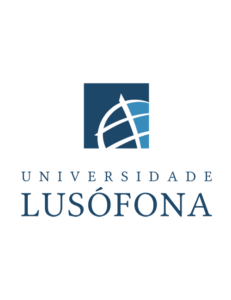
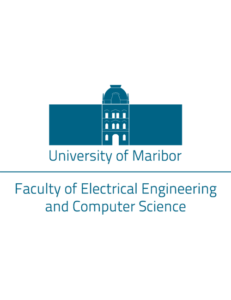
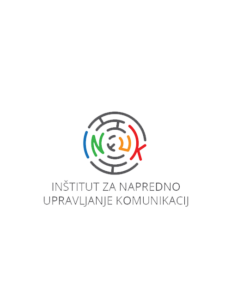
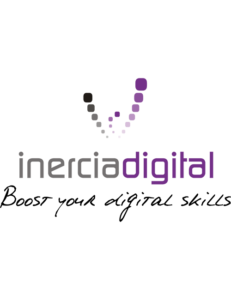
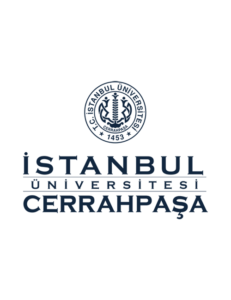
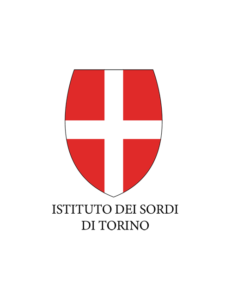
The European Commission support for the production of this publication does not constitute an endorsement of the contents which reflects the views only of the authors, and the Commission cannot be held responsible for any use which may be made of the information contained therein.

Avrupa Birliği tarafından finanse edilmektedir. Ancak ifade edilen görüş ve düşünceler sadece yazar(lar)a aittir ve Avrupa Birliği veya Avrupa Eğitim ve Kültür Yürütme Ajansı’nın (EACEA) görüşlerini yansıtmak zorunda değildir. Ne Avrupa Birliği ne de EACEA bunlardan sorumlu tutulamaz (2022- 1 -SI01 -KA220-HED-000088368).






